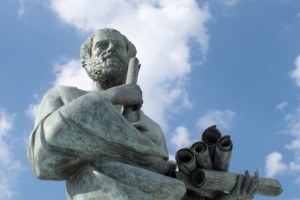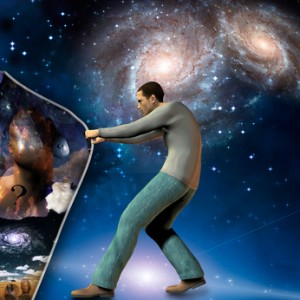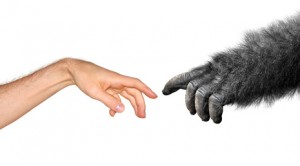Jonathan Morgan
 What’s the good life? Ask a hundred people and you’ll get a hundred different answers. But if you step back and look at all their answers, they’ll tend to fall into two camps. One group will talk about pursuing pleasures, satisfying desires, and having fun. Others will talk about a life of meaning and purpose. The distinction between these two strategies has been around since the ancient Greek philosophers, and remains relevant today with contemporary psychologists empirically studying the differences. Of all the different ways religions influence our lives, one of the most important is how it pushes us towards a life of meaning or a life of pleasure.
What’s the good life? Ask a hundred people and you’ll get a hundred different answers. But if you step back and look at all their answers, they’ll tend to fall into two camps. One group will talk about pursuing pleasures, satisfying desires, and having fun. Others will talk about a life of meaning and purpose. The distinction between these two strategies has been around since the ancient Greek philosophers, and remains relevant today with contemporary psychologists empirically studying the differences. Of all the different ways religions influence our lives, one of the most important is how it pushes us towards a life of meaning or a life of pleasure.
From Socrates onward, Greek philosophers debated about the term eudaimonia. Eudaimonia translates most directly as “good spirit,” (think about “eu” as in euphoria and “daimon” as in, well… daemon or demon or spirit). But it has also been translated as happiness or flourishing. Their debates about what constitutes a good spirit or good life were almost never-ending. But the really surprising part is that such discussions always involved virtue. Think about that for a second. In our culture we rarely talk about happiness and virtue in the same breath– the two are treated as totally disconnected. Maybe that’s a problem.
For the Stoics, virtue and eudaimonia were completely connected. In other words, living a virtuous life was all that was necessary for well-being. Even if you were poor, had bad health, and were suffering in other ways, if you had virtue then you’d have a good life. Aristotle, on the other hand, saw true eudaimonia as involving a balance of virtue with pleasure, health, and other beautiful elements of life– virtue alone wasn’t quite enough for a fully flourishing life. The debates between the two schools of thought are much more complex than this; they involve different ideas about passion, purpose, human nature, and our roles within society. But despite the complexities and disagreements, they agreed that virtue was a necessary part of the good life. Pleasure alone wasn’t going to lead to a good life.
Psychologists today seem to be coming to a similar conclusion. As I wrote about last time, the field of positive psychology has been systematically studying the difference between a life of pleasure and a life of meaning. And some key studies have found important differences between the two.
Roy Baumeister, one of the most prominent social psychologists, summarized these differences in a paper a couple of years ago and came up with three essential points where the happy life and the meaningful life diverge: how we handle desires, how we picture our place in time, and how we picture our place in community. Here are his main points:
1. A life built around pleasure and a life built around meaning handle desires differently. We all have basic needs and desires, and we feel good when they’re satisfied. Along those lines, Baumeister found that when people felt that life was a struggle, they often reported lower levels of happiness– but struggle was unrelated to whether they found life meaningful or not. Perhaps more to the point of desires and needs, experiencing a scarcity of money had impacted levels of happiness at twenty times the rate it influenced people’s perceived levels of meaning. Those were just two of a variety of measures tracking the fulfillment of desires and needs, but the take-away from all these studies is our first point of difference: Feeling good or bad has great bearing on happiness, but is pretty much unrelated to whether you live a meaningful life or not.
2. The second point deals with time: happiness tended to depend upon the present moment, while meaningfulness was more concerned with integrating the past, present, and future. Not only did happiness depend on the present moment, but thinking about the past and the future had a negative impact on happiness. Perhaps that makes sense: worrying about what’s going to come and ruminating over what has happened often take away from good things in the present moment. But reflecting on what has happened and planning for the future are also necessary skills for living up to certain ideals, which is connected to the meaningful life. Interestingly, it’s not just how much people think about the past and future that influences meaningfulness. Meaning is about linking together the past, present, and future– it’s about integrating time, whereas happiness is just concerned with the present moment.* Which brings us to our final point:
3. Both happiness and meaningfulness are related to being involved in communities– being disconnected is bad for both happiness and meaningfulness, while belonging somewhere, anywhere, is good. But once you get beyond belonging, the two diverge. Within a group, happiness is about being a taker, while meaningfulness is about being a giver. This was one of the stronger correlations of the study, so it’s worth repeating. Doing things for others is connected to a meaningful life, while having others do things for you is connected to happiness. In fact, once you control for meaningfulness, doing things for others actually has a negative impact on happiness. That means the happiness you feel from giving a gift is almost entirely tied up with how meaningful that act is. This finding extends into other research Baumeister highlights, which suggests that serious involvement with things beyond oneself promotes meaning, but hurts happiness.
Of course, these three points of divergence are interrelated. Fulfilling desires is largely a pursuit within the present moment and is often indifferent to how those desires are fulfilled. Meaning, on the other hand, is largely indifferent to current desires and is instead focused on ideals or values that transcend the present moment and the individual.
Baumeister summarizes these findings within a framework that suggests that happiness is natural but meaningfulness is cultural. This is a pretty deep insight into human nature, because we are inescapably cultural animals. We span these two domains and thus are left to constantly balance and choose between fulfilling animal desires or cultural values.
And this is where religion enters the picture. Culture and religion are intimately intertwined, probably for as long as culture has existed. So it’s no surprise that religions have offered a variety of strategies for navigating these two pulls. It’s also not surprising that religion often comes down more heavily in favor of meaning. Ascetic traditions represent the extreme position by suggesting that human fulfillment requires completely transcending fleshly (that is, animal) desires and wedding oneself to transcendent ideals. But other traditions offer a much more balanced approach by trying to describe how to align desires like having wealth with meaning, by prescribing generous giving.
Religion often gets a bad reputation for being too restrictive – we live in a culture that equates freedom with the ability to have and fulfill desires. So religions are seen as stodgy old things that just don’t want us to have fun. But where else do we get people seriously wrestling with how to balance desire and value? Unlike the Greek ethicists who take this question up in earnest, our contemporary ethicist worry themselves with ridiculous hypothetical situations that nobody will ever encounter. So even if religion is sometimes stodgy, at least it’s willing to take this question seriously. Because despite religions’ disagreements on precisely how to balance desire and ideals, the commonality across all of them is that they take values as real.
If we can’t discuss virtue and values, then we’re left with the lowest common denominator– our animal nature. The debate is no longer whether or not virtue is sufficient for eudaimonia. Instead it’s simply assumed that the good life must be the life spent pursuing pleasure. At least we know that’s real. But within a culture built around fulfilling desires we rarely ask ourselves what desires are worth having.
Asking such questions puts us immediately into the realm of values and meaning, a realm that weighs the present moment in light of the past and the future, and balances individual wants with collective needs. If we are truly bio-cultural animals, then it’s a realm that we can’t escape– so shouldn’t we at least pause and think about how to balance the two? Because if the Greek philosophers are right, and Baumeister’s research is right, then sometimes happiness has to be traded in to live a meaningful life.
*This could be taken to imply the common assumption that happiness is fleeting. But that also didn’t seem to be the case. Instead people who were happy tended to be pretty stably happy across time.









